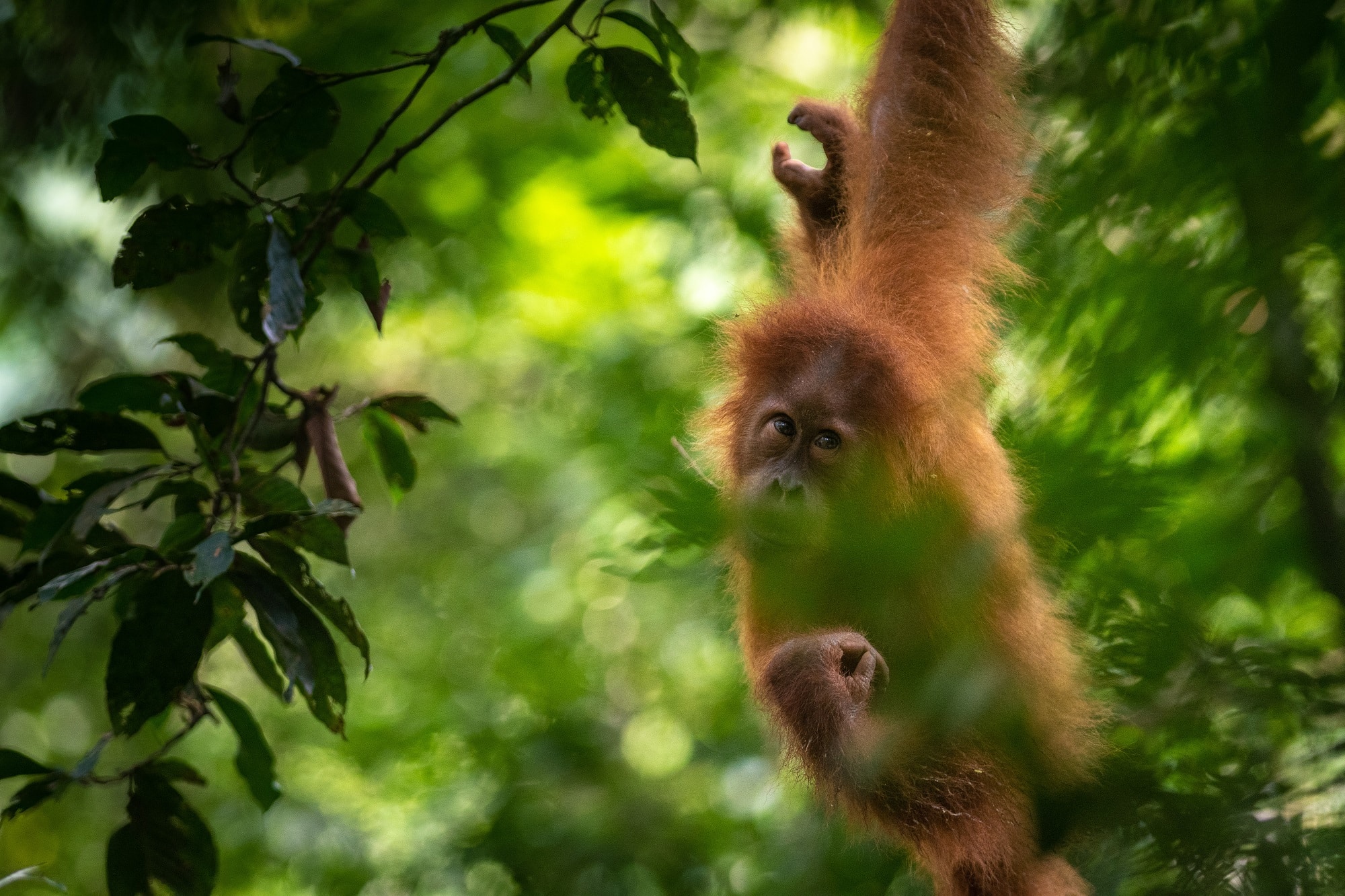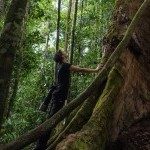In the summer of 2018, we learned that a highly strategic plot of land on the edge of Sumatra’s Leuser Ecosystem was available for purchase. The plot was being used as an oil palm plantation and was a hotspot for conflict between people and wildlife. A herd of elephants regularly passed through the plantation, damaging the oil palms and people’s property, and we knew from our colleagues in Sumatra that an elephant calf had been killed in retaliation. Additionally, an orangutan had become stranded in the plantation shortly before we heard it was up for sale; she was evacuated and returned to the wild in a safe patch of forest, but we know from experience that for each orangutan rescued, there are likely to be many others who are less fortunate. Perhaps most shockingly, one of the plantation’s security guards had been arrested and jailed after killing two Sumatran tigers.
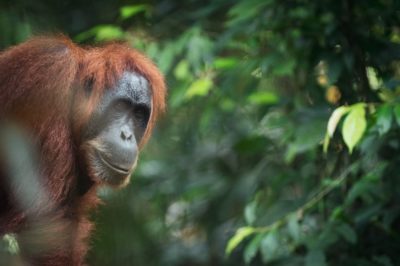
When we heard that the land was up for sale, we knew we had to act. The price of the land (£870,000) was much higher than anything we had previously fundraised for, but with such obvious danger to people and wildlife, it was impossible to turn our backs on this opportunity. I mentioned above that the land was ‘highly strategic’. This means that in addition to restoring and protecting the 890-acre plot itself, purchasing this land with its extensive border along the intact forests of the Leuser Ecosystem would enable our partners in Sumatra to create a buffer zone that protects that border – and the forest beyond it – from illegal activities such as poaching and logging.
With only a few weeks to fundraise the first instalment and secure the land, our very small team had to work fast to put together all the materials we needed to explain the importance of the campaign to our supporters and encourage contributions from both existing and new donors. We were delighted when a creative agency from London called Don’t Panic contacted us to offer us the use of an animated short film they had made. The film, which shows Jungle Book characters struggling to survive on grey city streets, fitted perfectly with our appeal name, Rainforest Home, and got a fantastic response online (a retweet from Stephen Fry was a particular high point!).
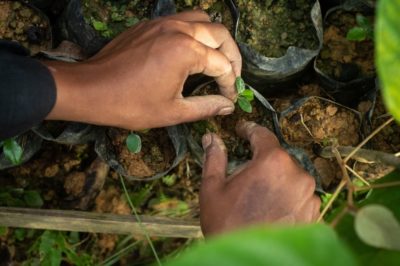
Restoring Cinta Raja – Andrew Walmsley
We were overwhelmed by the early support we received for the appeal. We quickly reached the first instalment target, and many of the donors contacted us to find out more about why this land is important, and what else they can do to support Sumatran orangutan conservation. Some had questions about land purchase as an approach and wanted to know how well it works as a conservation strategy, and we were really pleased to be able to engage in discussions about this. As the months went by and the deadlines for the second and third instalments got closer, we had some concerns about raising the rest of the money. Our donors are committed and very generous, but this was an extra big ask. In the end, though, nearly two and a half thousand people donated, and some of them gave multiple donations to help us get closer to our goal. We were really touched by the efforts people went to, too – undertaking everything from special art raffles to sponsored swims because they wanted to chip in for this vital piece of land.
In addition to the individuals who donated, we had fantastic support from organisations and businesses. Lush Ltd ran their SOS Sumatra campaign again, selling orangutan-shaped soaps and SOS shampoo bars in the UK, Europe, Asia-Pacific and North America. Local artists created a rainforest mural in our Oxfordshire office and sold prints to raise funds, and we also had donations from some wonderful trusts and foundations, including the Lion’s Share Fund.
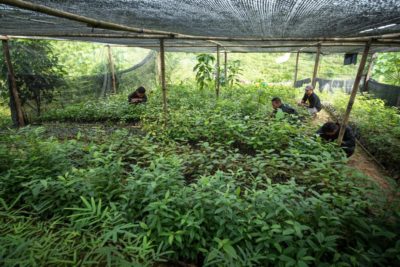
Restoring Cinta Raja – Andrew Walmsley
The appeal reached its target in mid-March, just before the deadline, and announcing its success to our donors and supporters was a humbling and emotional task. Working in any form of conservation can be tough, and there are days when new threats to Sumatra’s orangutans seem to arise quicker than we can possibly hope to address them. The Rainforest Home appeal showed us that we are part of a global community that believes there is still hope and wants to support conservation initiatives. Several donors commented that they contributed because they want to make something positive happen. When we announced that we’d raised the full £870,000, many supporters contacted us to say that the news had made their day and that they want to continue supporting the work by donating to purchase tree seedlings, pay restoration staff and fund anti-wildlife crime patrols. It is clear to us that even the people who care the most about a species still need reasons to remain hopeful sometimes. We can’t expect our supporters to stay positive if we don’t help them to do so, and this campaign illustrated the power of good news in renewing people’s faith in the conservation cause. We have always tried to showcase the positive as well as the troubling in our communications, but this reminder of the importance of conservation optimism has made us even more determined to keep doing so.
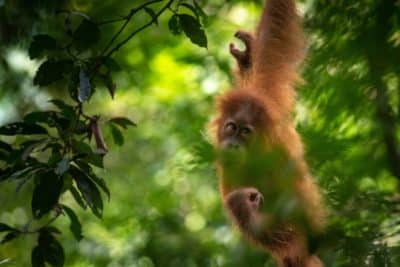
An Orangutan in Bukit Lawang – Andrew Walmsley

